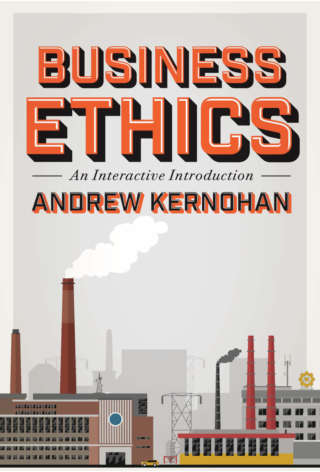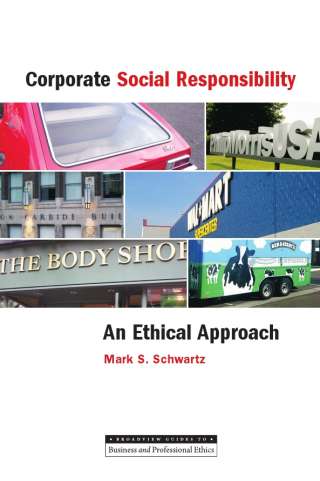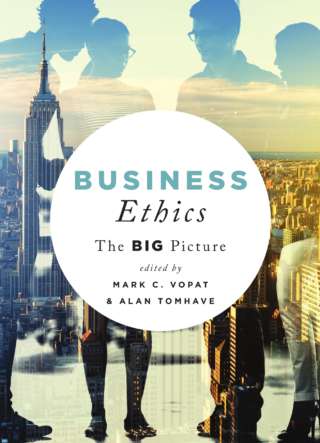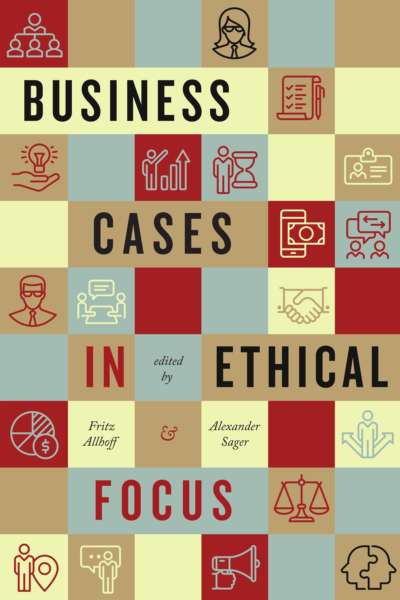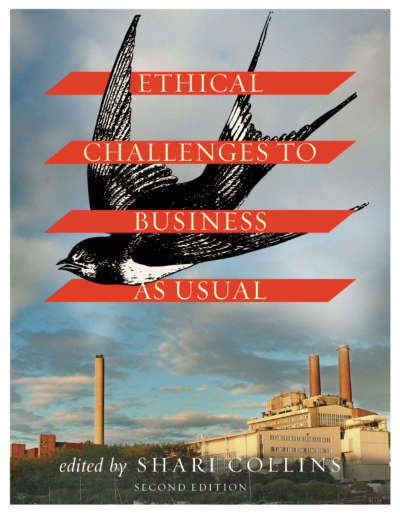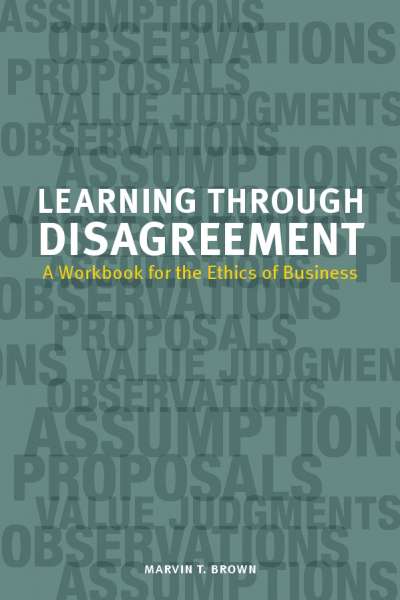Peg Tittle’s ambitious business ethics text brings together readings, cases, and the author’s own informed opinions. The second edition includes over a dozen new readings and case studies, as well as a new chapter on issues in Information and Communication Technology.
Includes
- Canonical and topical readings on issues ranging from whistleblowing and advertising to international business, the nature of capitalism, and the environment
- Engaging overviews from the author encourage careful reflection and critical examination of conventional assumptions
- What to Do? scenarios and Case Studies illustrate the practical relevance of each topic
- Comprehensive introductions to ethical theory and the ethics of business
- Questions following each selection test understanding and promote active reading
- A primer on ethical institutions examines the role of ethics consultants, codes of ethics, and more
Comments
“Ethical Issues in Business is clear and user-friendly yet still rigorous throughout. It offers excellent coverage of basic ethical theory, critical thinking, and many contemporary issues such as whistleblowing, corporate social responsibility, and climate change. Tittle’s approach is not to tell students what to think but rather to get them to think—and to give them the tools to do so. This is the text I would pick for a business ethics course.” — Kent Peacock, University of Lethbridge
“This is a well-constructed text. It covers important topics in business ethics with academic rigour yet succeeds in making the material accessible.” — Robert Larmer, University of New Brunswick
Note to the Reader
Part I—Introduction to Ethics in Business
- Making Ethical Decisions
- The Role of Ethics in Business
- A Few Words about Terminology
- How to Think about Ethics
- How to Discuss Ethics
- Closing Comments
Part II—Introduction to Ethical Theory
- Introductory Note
- Egoism
- Utilitarianism
- Kantian Ethics
- Virtue Ethics
- Intuitionism
- Rights Theories
- Justice Theories
- Religionism
- Relativism
- Closing Note
Part III—Ethical Issues in Business
Chapter 1—Whistleblowing
- What to Do?—Rivertree’s Grocery
- Introduction
- Whistle Blowers: Saints of Secular Culture Colin Grant
- Whistleblowing and Employee Loyalty Ronald Duska
- Case Study: Dr. Olivieri vs. Apotex
Chapter 2—Advertising
- What to Do?—In-Your-Face Advertising, Inc.
- Introduction
- The Inconclusive Ethical Case against Manipulative Advertising Michael J. Phillips
- It’s All on Sale: Marketing Ethics and the Perpetually Fooled Andy Wible
- Pop-Ups, Cookies, and Spam: Toward a Deeper Analysis of the Ethical Significance of Internet Marketing Practices Daniel E. Palmer
- Case Study: Adbusters
Chapter 3—Product Safety
- What to Do?—An Ungodly Insurance Policy
- Introduction
- Creative Destruction and Destructive Creations: Environmental Ethics and Planned Obsolescence Joseph Guiltinan
- On the Ethics of the Use of Animals in Science Dale Jamieson and Tom Regan
- Trans Fat Bans and Human Freedom David Resnik
- Case Study: Personal Watercraft (PWCs)
Chapter 4—Employee Rights
- What to Do—IT Tech and/or Hall Monitor?
- Introduction
- Affirmative Action and Employment Equity in Canada Susan Dimock and Christopher Tucker
- Ethics and Genetics: Susceptibility Testing in the Workplace Chris MacDonald and Bryn Williams-Jones
- Case Study: The Westray Mine Disaster
Chapter 5—Management, Corporate Governance, and CSR
- What to Do?—Union’s in the Air
- Introduction
- The Discourse of Control Stephen Maguire
- In Defense of the Right to Strike Charlotte A.B. Yates
- Why Corporations Should Not Abandon Social Responsibility Moses L. Pava
- Case Study: The Mountain Equipment Co-op
Chapter 6—International Business
- What to Do?—The Processing Fee
- Introduction
- Ethics and Multinational Corporations vis–á–vis Developing Nations James R. Simpson
- Ethical Value-Added: Fair Trade and the Case of Café Femenino J.J. McMurtry
- Case Study: Scotiabank’s Microfinance Services: A Good Thing?
Chapter 7—Profit and Capitalism
- What to Do?—No Limits, Ltd.
- Introduction
- Economic Efficiency and the Quality of Life Rockney Jacobsen
- Capitalism and Its Regulation: A Dialogue on Business and Ethics Martin Parker and Gordon Pearson
- Case Study: Tembec: Losses to Profits to??
Chapter 8—The Medical Business
- What to Do?—The Fetal Tissue Transplant Business
- Introduction
- Ethics, Economics, and Public Financing of Health Care Jeremiah Hurley
- Ethics, Pricing and the Pharmaceutical Industry Richard A. Spinello
- Case Study: The St. Michael’s-Wellesley Hospital Merger
Chapter 9—Information and Communication Technology (ICT) Issues
- What to Do?—The IC
- Introduction
- Employer’s Use of Social Networking Sites: A Socially Irresponsible Practice Leigh A. Clark and Sherry J. Roberts
- Online Multiplayer Games: A Virtual Space for Intellectual Property Debates? Sara M. Grimes
- Case Study: Canipre: Hero or Villain?
Chapter 10—Business and our Environment
- What to Do?—Canadian Natural Resources, Inc.
- Introduction
- Business Ethics and the International Trade in Hazardous Wastes Jang B. Singh and V.C. Lakhan
- If a Tree Falls … John Palmer, Eugene Tan, and Kent A. Peacock
- Ethics and Climate Change: An Introduction Stephen M. Gardiner
- Case Study: Neil Young’s Tour
Part IV—Institutionalizing Ethics
- Introductory Note
- Ethics Offices/Officers/Committees
- Ethics Consultants
- Ethics Programs
- Codes of Ethics
- Ethics Audits
- Closing Note
Peg Tittle has taught philosophy at the university, college, and high-school levels and is the author of several books, including Critical Thinking: An Appeal to Reason (Routledge, 2011) and What If? Collected Thought Experiments in Philosophy (Taylor and Francis, 2003).
Ethical Issues in Business includes a companion website. This site hosts supplemental slides for instructors that correspond with the parts and chapters of the book. To access this site, please click here.


